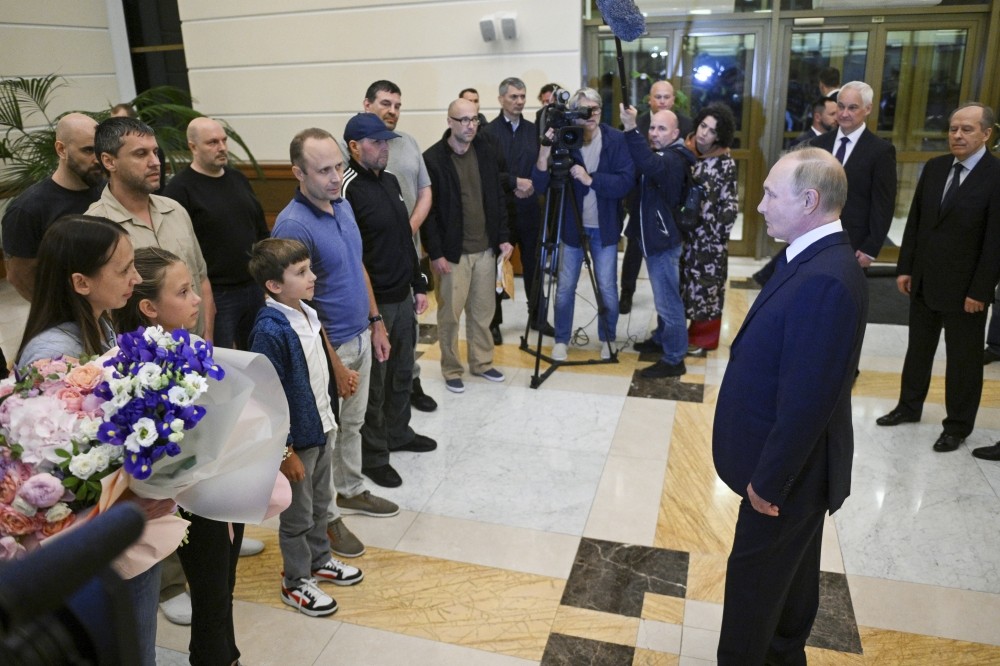03/08/2024
03/08/2024

WASHINGTON, Aug 3, (AP): Russia's President Vladimir Putin strode along the red carpet between two rows of rifle-toting honor guards and warmly greeted intelligence operatives freed in the biggest prisoner swap with the West since the Cold War.
"The Motherland hasn’t forgotten about you for a minute,” Putin said, embracing each of them after they walked down the steps of the jetliner that ferried them home.
Putin, who rarely - if ever - travels to the airport to greet foreign heads of state these days, was delivering a clear, morale-boosting message to his security services: If you get caught, Russia will bring you home.
For the Kremlin, Vadim Krasikov, the hitman imprisoned in Germany for killing a former Chechen militant in Berlin, was perhaps the most important component in the exchange that saw eight Russians swapped for 16 Westerners and Russian dissidents who had been imprisoned in recent years.
Moscow freed American journalists Evan Gershkovich and Alsu Kurmasheva, former US Marine Paul Whelan and a group of top dissidents.
Washington extolled it as a major diplomatic victory. But so did Moscow.
"Putin is sending a signal that those working abroad will have maximum protection, and that if they are arrested, the state will fight for their return and roll out the red carpet for them,” said Tatyana Stanovaya, a senior fellow at the Carnegie Russia Eurasia Center.
She noted that Russian and Western perceptions of the deal were starkly different.
"In the West, it’s being viewed from a humanitarian and political perspective, closely followed by media, significant for society," Stanovaya told The Associated Press. "In Russia, it’s not an issue for society, it’s an issue for the state.”
The average Russian probably "doesn’t even know the names of those who returned," she added. "But for Putin, those who returned to Russia are real heroes, patriots who worked for the state and defended the national interest.”
Krasikov was convicted in the Aug 23, 2019, killing of Zelimkhan "Tornike” Khangoshvili, a 40-year-old Georgian citizen who had fought Russian troops in Chechnya and later claimed asylum in Germany.
At his sentencing to life in prison in 2021, German judges said Krasikov had acted on the orders of Russian authorities, who gave him the resources to carry out the killing.
In 2019, Kremlin spokesman Dmitry Peskov denied any Russian involvement in the killing. But on Friday, he said Krasikov is an officer of the Federal Security Service and once served in the FSB’s special forces Alpha unit, along with some of Putin’s bodyguards.


